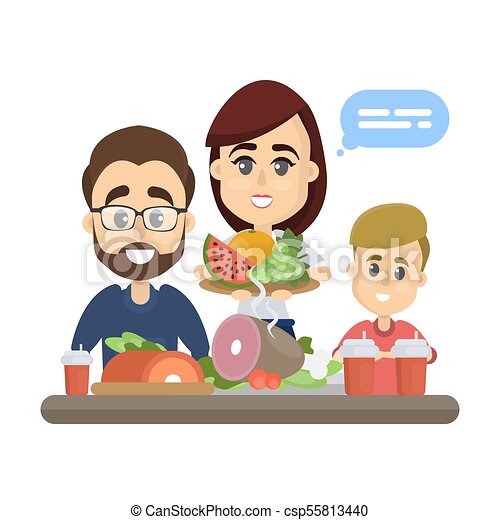
Clean eating is the practice of eating food in its natural state. While the term can mean different things, it usually entails eating less processed foods, eliminating added sugars, and eating more fresh, whole foods. This can help you have a healthier lifestyle and better health.
It may be difficult to get started with 'Clean Eating' but you will find it easier and more natural over time. Start small. Before you know it you will be eating healthier and feeling better. Plan ahead. This way you can avoid impulsive eating.
You can start eating clean by stocking your kitchen with healthy foods. This will help you avoid impulsive choices and make eating healthier easier during the week. The first step is to read the labels on foods you buy. Check for added sugars, artificial ingredients, and other chemicals.
Also, avoid foods high in sugar and salt. This includes sodas and soft drinks as well as fruit juices and breakfast cereals. These products are low in fiber, and may contain chemical additives.

Alternate milks are also worth considering. Alternative milks such yogurt and Kefir are easier than cow's milk to digest. You can also search for organic nuts, seeds, grassfed beef, fresh fruit, and other dairy alternatives.
Changes in your diet can have an impact on your energy and appetite. Eat a snack approximately every two to four hours to avoid feeling tired and hungry. Drink plenty of water. Make your own sparkling water by adding your favorite fruits.
You should also carefully read labels on canned foods. Many canned products contain artificial ingredients, which can pose a risk to your health. Make sure you read the ingredients list for canned soups. This could include artificial sweeteners, salt, or other chemicals.
Clean eating isn't as difficult as you might think. It's easy to make small changes in your eating habits and gradually adapt your food choices. Every healthy decision you make will be a positive one. After a few weeks of healthy eating, you should feel more energetic. You will also notice a rapid change in your taste buds, so allow yourself some room.
Clean eating can help you eat healthier and regulate your weight. This can also help you improve your immune system and cardiovascular health. Clean eating can help regulate bowel problems. You'll also feel more energized and improve your mood.

You can also find clean-eating recipes online and in books. Start with fresh whole foods, like fruit and vegetables, and avoid processed foods. Limit your intake of dairy products and meat. You can also try eating a variety of foods to ensure you get all of the nutrients you need.
Clean eating can help you eliminate long-term dietary deficiencies. Clean eating can help to improve your health and speed up your recovery. It can also help to regulate your blood pressure and cholesterol levels.
FAQ
How to measure body fat?
A Body Fat Analyzer (BFA) is the best method to measure bodyfat. These devices are used to determine the body's percentage for people who want weight loss.
What should I eat?
Consume lots of fruits, vegetables. They contain vitamins and minerals which help keep your immune system strong. Fruits and veggies are also high in fiber, which makes them filling and helps with digestion. Try to include at least five servings of fruit and veg per day.
Make sure you drink plenty of water too. Water flushes toxins out of the body and helps to feel full between meals. Drink about eight glasses each day.
Eat whole grains instead of refined ones. Whole grains have all the nutrients they need, including B vitamins. Some nutrients have been removed from refined grains.
Avoid sugary beverages. Sugary drinks can be a source of empty calories, which can lead to obesity. Instead, opt for water, milk, or unsweetened tea.
Avoid fast food. Fast food is low in nutritional value. You won't get the energy you need to function well, despite how delicious it may be. Use healthier options, such as soups, sandwiches, salads, and pasta.
Limit your alcohol intake. You should limit your alcohol intake as it contains empty calories and can lead to poor nutrition. Limit the amount of alcohol you consume in a given week to no more than 2 alcoholic beverages.
Reduce your consumption of red meat. Red meats contain high amounts of saturated fat and cholesterol. Choose lean cuts such as beef, pork and lamb, chicken, fish, or turkey.
Do I need to count calories?
It is possible to wonder "what the best diet is for me?" or "is counting calories necessary?" This depends on several factors like your current health and personal goals. Your preferences and overall lifestyle.
Which one is right for you?
The best diet is dependent on my current health status, personal goals, preferences, and overall lifestyle. There are many diets out there, some good and some bad. Some diets work better than others. What can I do to make the right choice? What can I do to make the right decision?
This article aims at answering these questions. It starts with a brief introduction of the different types of diets available today. After that, you will learn about the pros and disadvantages of each type. Then, we will discuss which diet is the best.
Let's begin by briefly reviewing the different types and diets.
Diet Types
There are three main types. Low fat, high protein, or ketogenic. Let's discuss them briefly below.
Low Fat Diets
A low fat diet reduces the amount of fats you eat. This is achieved by reducing saturated fat intake (butter, cream cheese etc.). These fats can be replaced with unsaturated fats like avocados and olive oil. A low fat diet is often recommended for those who want to lose weight quickly and easily. This diet can cause constipation, heartburn, and stomach problems. It can also lead to vitamin deficiencies, if someone doesn't get enough vitamins in their food.
High Protein Diets
High protein diets are known to restrict carbohydrate intake and promote the consumption of protein. These diets have higher protein levels than other diets. These diets are intended to increase muscle mass and reduce calories. One problem is that they may not provide adequate nutrition to someone who needs it. They are not suitable for all people because they can be restrictive.
Ketogenic Diets
These diets are also known under the name keto diets. They are high in fat, moderately high in protein, and low in carbohydrates. They are typically used by athletes and bodybuilders because they allow them to train harder and longer without getting tired. To avoid side effects such as fatigue, nausea, headaches, or other unpleasant side effects, you must strictly adhere to their instructions.
What are 10 healthy habits you can adopt?
-
Get breakfast every morning.
-
Don't skip meals.
-
Eat a balanced, healthy diet.
-
Drink lots of water.
-
Take care of yourself.
-
Get enough sleep.
-
Avoid junk food.
-
Do some type of exercise daily.
-
Have fun!
-
Make new friends.
Statistics
- The Dietary Guidelines for Americans recommend keeping added sugar intake below 10% of your daily calorie intake, while the World Health Organization recommends slashing added sugars to 5% or less of your daily calories for optimal health (59Trusted (healthline.com)
- WHO recommends reducing saturated fats to less than 10% of total energy intake; reducing trans-fats to less than 1% of total energy intake; and replacing both saturated fats and trans-fats to unsaturated fats. (who.int)
- WHO recommends consuming less than 5% of total energy intake for additional health benefits. (who.int)
- In both adults and children, the intake of free sugars should be reduced to less than 10% of total energy intake. (who.int)
External Links
How To
27 steps to live a healthy life even if your family eats only junk food
Cooking at home is the best way to eat well. But, it can be hard to make healthy meals because many people don't know how. This article will help you make healthier choices while dining out.
-
Select restaurants that offer healthy dishes.
-
Order salads and vegetables before ordering any meat dishes.
-
Ask for sauces that aren't sweetened.
-
Avoid fried foods.
-
Request grilled meats instead of fried ones.
-
You shouldn't order dessert unless it is absolutely necessary.
-
After dinner, make sure you have something to eat.
-
Take your time and chew slowly.
-
Take plenty of water with your meals.
-
Do not skip breakfast, lunch or dinner.
-
Fruits and vegetables are a great addition to every meal.
-
Use milk, not soda.
-
Avoid sugary beverages
-
Reduce salt intake.
-
Try to limit the number of times you go to fast food restaurants.
-
Ask someone to join you if you cannot resist temptation.
-
You should not allow your children to watch too many TV programs.
-
When you are eating, keep the TV off.
-
Avoid energy drinks
-
Take regular breaks at work.
-
Exercise early in the morning.
-
Every day, exercise.
-
Start small, and work your way up.
-
Set realistic goals.
-
Be patient.
-
Even if you don’t feel like exercising, make time for it.
-
Positive thinking is key.